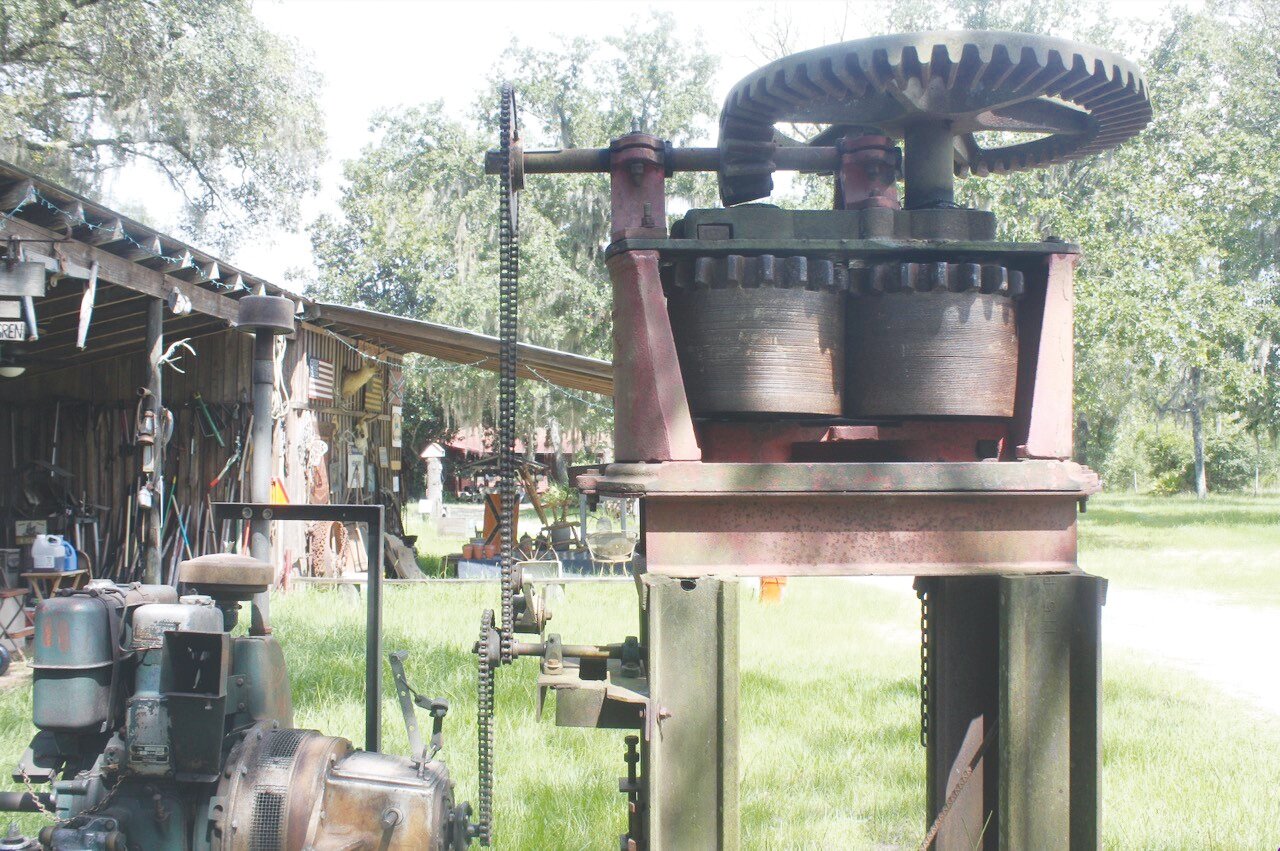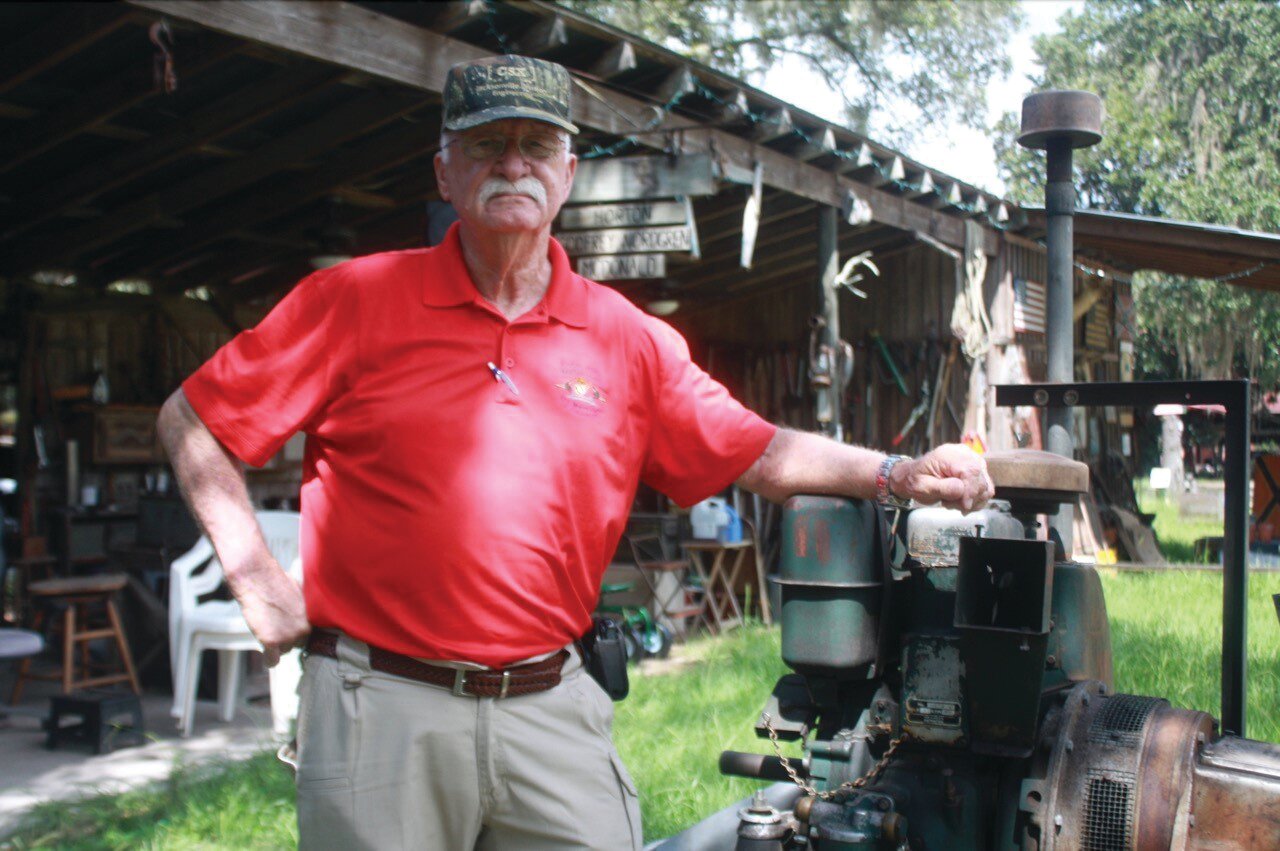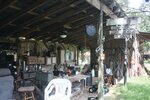Sweet smell of success
Hendry’s farm mixes historical relics, sugar cane to make iconic family syrup
LAKE ASBURY – Drive across the Lake Asbury bridge and take a right turn right from Branscombe Road down a dirt road, and you will be greeted with the sweet smell of success. Here, you will …
This item is available in full to subscribers.
Attention subscribers
To continue reading, you will need to either log in to your subscriber account, below, or purchase a new subscription.
Please log in to continueDon't have an ID?Print subscribersIf you're a print subscriber, but do not yet have an online account, click here to create one. Non-subscribersClick here to see your options for subscribing. Single day passYou also have the option of purchasing 24 hours of access, for $1.00. Click here to purchase a single day pass. |
Sweet smell of success
Hendry’s farm mixes historical relics, sugar cane to make iconic family syrup
LAKE ASBURY – Drive across the Lake Asbury bridge and take a right turn right from Branscombe Road down a dirt road, and you will be greeted with the sweet smell of success.
Here, you will meet Gayward Hendry, former County Commissioner, Chief Inspector for the Sheriff’s Office and retired U.S. Marine, and his wife, Susan Hendry.
The farm has a wide array of animals, from chickens to pigs and donkeys to ducks. But that’s just the tip of the iceberg.
The property has a concert stage and a wooden smokehouse, which lies across the road. Next to it is a vintage cabin designed with the exact same blueprint of Susan’s former home on a dairy farm in Virginia built in the 1920s.
However, none of these tales are more intriguing than Hendry’s made-from-scratch operation, Ol’ Kelsey’s Sugar Cane Syrup.
The cane syrup holds a special place in the heart of Lake Asbury, a labor of love that comes to life each year in the form of the annual Hendry Farms Cane Grinding.
The 35th annual event will take place Dec. 2-3.
The festival has grown exponentially over the years, becoming a staple event in the community.
“I had the kids out here, and they came and squeezed and cooked the (sugar cane). The next year, they’d bring their parents. They’d bring their grandpa, grandma, and aunts and uncles year after year,” he said.
The event grew from approximately 25 visitors to 400 in a few short years, and cane syrup isn’t the only thing on the menu.
Fried fish, turnips, collard greens, pig skins and cracklings, fried fish, southern ham and sausage, alligator and buffalo are options.
The buffet is set on a four-foot-wide, 40-foot-long table, each dish capturing the essence of southern cuisine.
A blacksmith will be a true blast from the past while boiled peanuts sizzle under the telephone pole and Ron Davis will perform throughout the event.
But none of that beats the unique process of creating syrup.
It begins with a carefully selected premium crop, which is sourced from Frog Song Farms in neighboring Bradford County.
Hendry used to grow the crop himself at his other parcel on Thunder Road, but as demand grew and time grew more precious, he forged a partnership with a local farmer, streamlining the supply chain.
“It’s as simple as driving down with my trailer, honking the horn, and watching the skilled workers bring out their machetes and quickly cut and load the cane,” he said.
That process only takes an hour and a half, but that’s the beginning of the slow, intensive process from farm to table.
After transporting the freshly harvested crop back home, Hendry and his volunteers embark on the labor-intensive process of extracting the juice from the stalks.
The age-old mill, a cherished family heirloom that has been in operation for well over, will take center stage.
“This mill has been part of our family for generations. It was purchased by my great-grandaddy in 1899 and has remained an integral part of our syrup-making tradition ever since,” Hendry said.
Hendry earned his rights of passage from his uncle, who used it from the 1940s to the 1970s.
The mill is a remarkable engineering work with a proud history. The engine came from a harbor boat in London. Made in 1920, it still runs with precision and ease.
Hendry’s team will feed the sugar cane stalks through the mills’ rollers, crushing the stalks and releasing the precious juice, which then flows down a channel into a collection plan, ready to undergo the next step.
Once the juice is collected, it’s transferred to an 80-gallon vat for cooking. The vat is heated by a large propane burner, with a copper skimming tool carefully skimming off any impurities that rise to the surface.
The skimming process, which a skilled group of individuals performs, ensures that only the finest cane syrup remains.
“This step is crucial for achieving the desired purity and clarity of our syrup,” he said.
As the syrup slowly cooks, the water evaporates, leaving a concentrated final product behind.
Cooking sugar cane syrup is a delicate balancing act. If it’s not cooked long enough, the syrup won’t reach its desired thickness. Too much, and it would crystalize.
“You have to be careful. If you kept cooking (the sugar cane syrup), it would turn into candy,” Hendry said.
Using a hydrometer, a device that measures the density of the syrup, Hendry has to determine the ideal moment to remove it from the heat.
Next, the syrup is poured into the bottles, sealed and labeled. The transformation from farm to table is remarkable and best served with a batch of pancakes or on a biscuit in the morning.
The process, although time-consuming and demanding, is a tradition old as time, and the syrup, with rich flavor and subtle sweetness, has not only become a beloved staple in local households but a symbol of the region as a whole.
Bottles sell for $5, but that’s only to make up for the cost of production. Hendry isn’t in it for the money.
The syrup is cooked once to twice a day during the cane grinding. Cooking is done on Fridays and Saturdays.
A thorough process takes three to four hours, so it’s difficult to produce more than two batches daily. Each cooking produces eight to 10 gallons of sweet, nectary juice with a 10-1 water-to-syrup ratio. The process fills 12 cases containing 24 bottles each.













